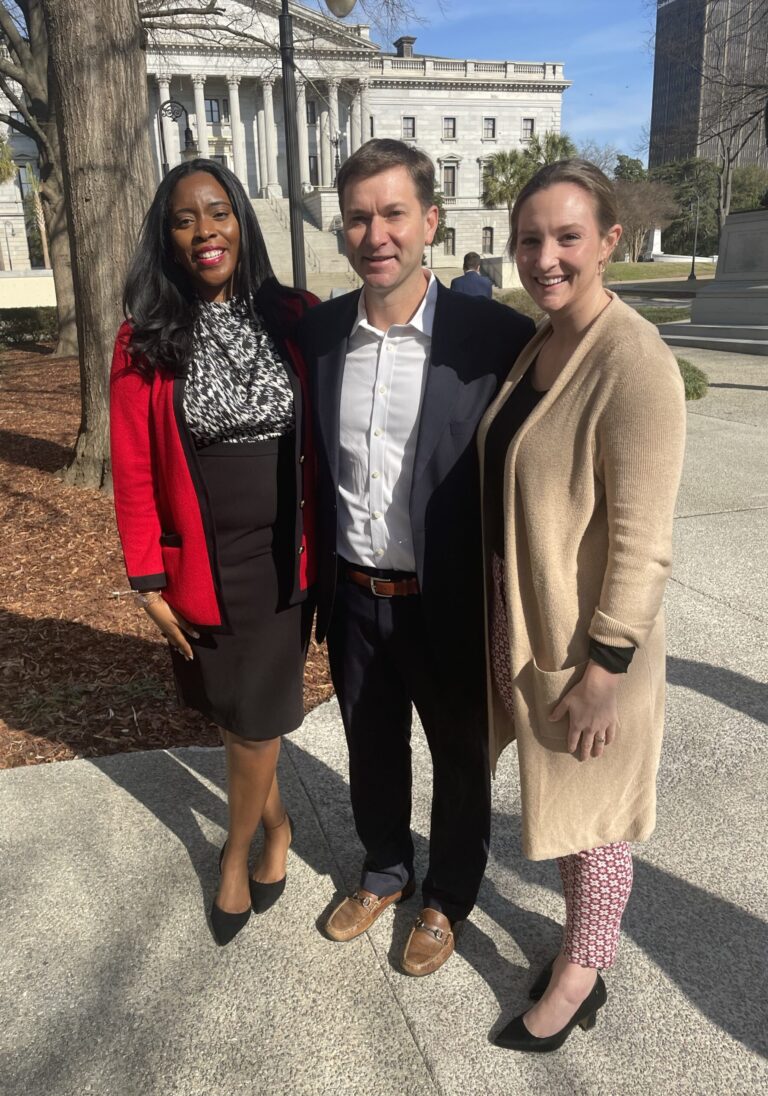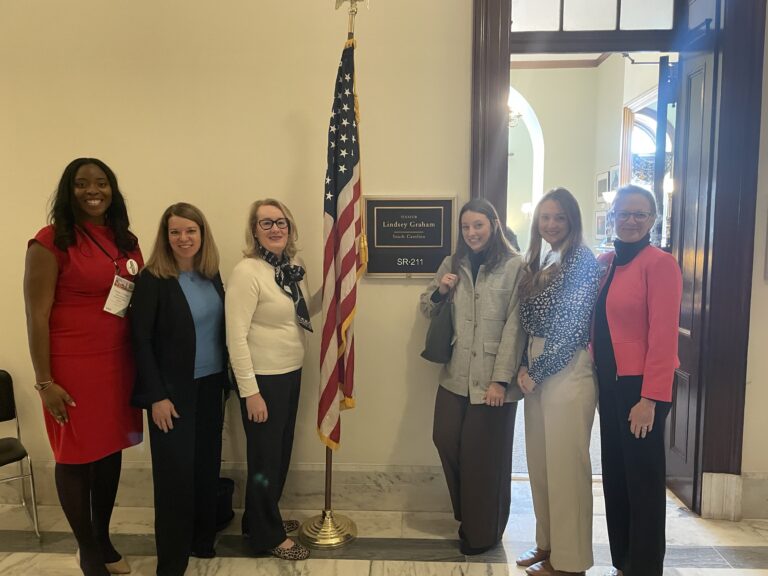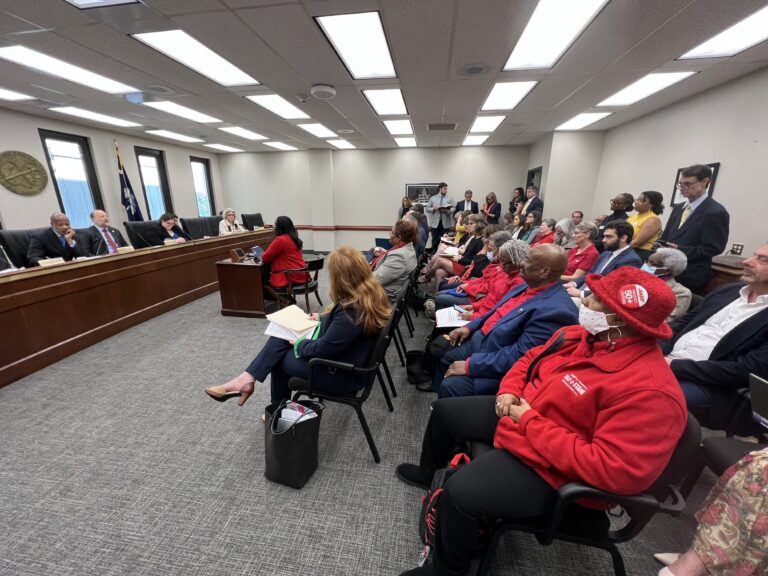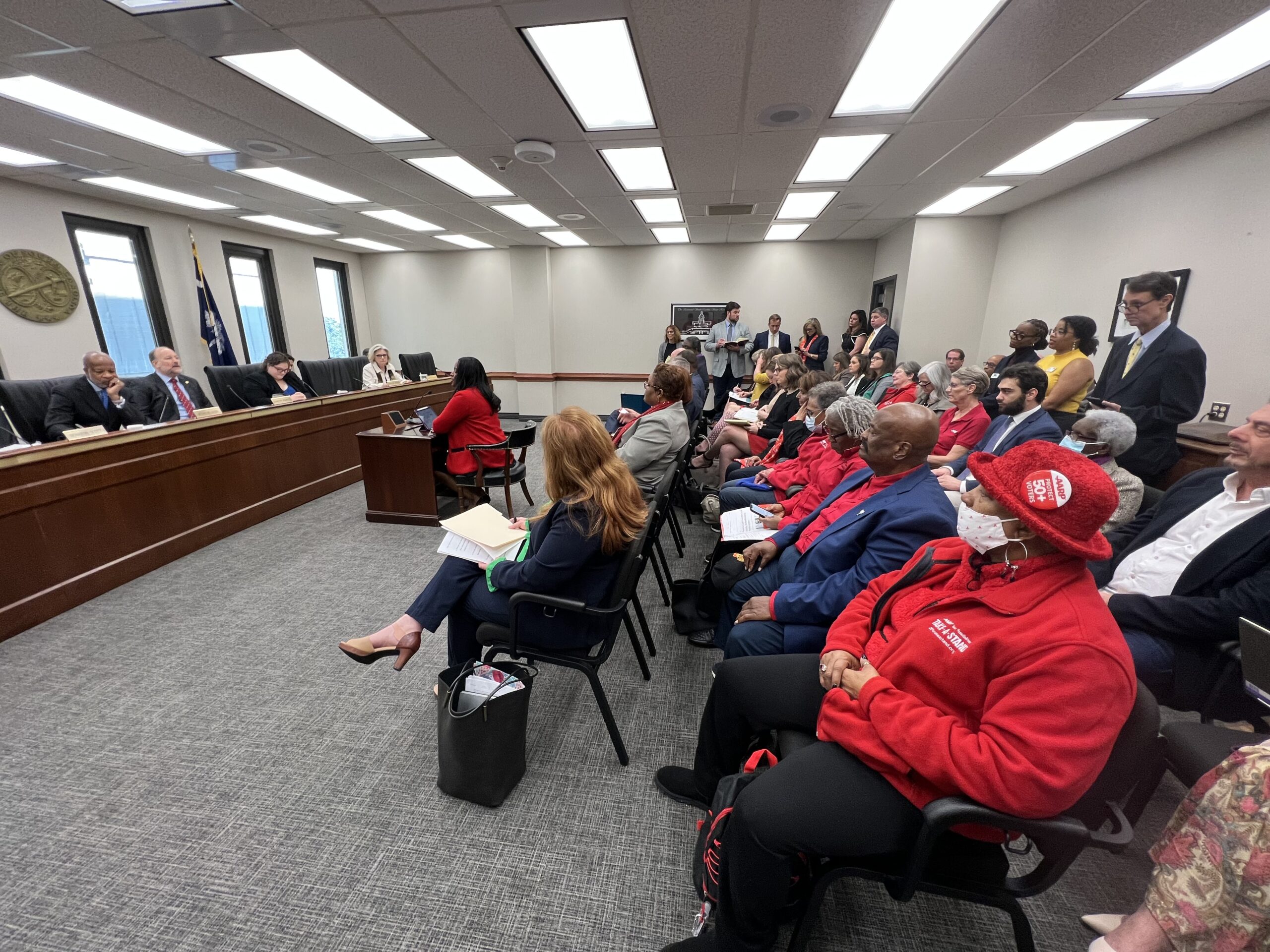Philanthropy Engaging in Advocacy: A Necessity
By Chynna A. Phillips, Senior Director of Policy and Research
Impact–a small word with endless possibilities. When considering our impact over time, we began to ask new internal questions. If our mission is to reduce poverty, what were we doing to address the root causes of poverty? With a finite amount of financial resources, what other forms of capital could we leverage to address our mission? And how do we work to inspire others, knowing that we cannot create lasting transformational change alone?

This line of questioning ultimately led to an expansive approach to our mission of reducing poverty knowing that our success can be measured in more than one way. We now have an increased dedication to community leaders, research that both guides our practice and challenges typical narratives of those experiencing poverty, and the implementation of plans to advocate alongside community members to address systemic issues (as well as fund those same leaders). Internally, we often say that our work is mission-driven, data-informed, and community-centered. Rather than focusing on the outputs of our efforts, I will reflect on how we operationalized this statement to guide our external efforts to deepen our overall impact through intentional internal shifts.
With over 50% of the state’s population experiencing high persistent poverty and words like “generational” and “cyclical” being used to describe poverty, one can easily become overwhelmed by the need in our state. Asking ourselves “why” these levels of poverty continue to persist has pointed us in the direction of a more action-oriented posture that advocates for a South Carolina where we can all thrive.
Mission-Driven: Seeing our Values in our Work
To begin, we first needed to become comfortable with the historical truth that poverty for many, has been carefully designed through a well-documented and calculated pattern of disadvantages. Having the courage to lean into and voice these truths, is grounded in the values of our organization and the determination of the Sisters of Charity of St. Augustine, the sisters who founded us. The acknowledgment was only the first step of many and became a charge to our Foundation to continue to step out on both faith and courage to speak up when others may be silent.
As we continued to lean into our values and allow our mission to guide our work, we relied on some additional factors to shepherd this journey:
- We had support from organizational leadership. While the inquiry began long before the timeline of a new strategic plan, leadership suggested the conversation should be timed appropriately with our organization’s growth. This timing allowed us to leverage the strategic planning process to gain insight, from both staff and board, for the direction of the Foundation. Leadership modeled what it meant to trust the process and stressed that the final document would not be one to simply sit on a shelf. This approach balanced and honored staff excitement with board/organizational realities.
- Our Board of Trustees was ready to buy-in. When sharing our story, we are often asked, “How did you get your board to agree with an added focus on advocacy in a sector that has not widely embraced the concept?” Our biggest learning was analyzing the assumptions we were making of our dynamic board members. Once we acknowledged that there wasn’t as much apprehension as we originally assumed we shifted to developing an educational plan that opened discussions on readings from leaders within our sector, adjusted the timeline to honor this new pace of learning, and saw questions as an opportunity rather than push-back. We found that many were ready to critically assess the conditions that make poverty possible and support innovative methods to address those realities.
- We recognized a need to thoughtfully onboard new members. As we began to dig deeper into advocacy, it exposed gaps in the experience of our board and staff, which offered an opportunity to recruit additional board members whose experience connected with this addition.
Data-Informed: Developing a Learning Atmosphere
In partnership with the College of Social Work at the University of South Carolina in 2018, we collated the themes of barriers seen in the community that we gathered from hundreds of grantee partners over a period of two years. These findings revealed a road map of structural issues and suggested that our focus should be on the conditions surrounding the individuals facing poverty. This shift toward addressing the systemic injustices that exacerbate poverty was then later supported and guided by our 2020 poverty study, “South Carolina: Structural Factors Associated with Poverty” which examined the multifactorial phenomenon of poverty. Our 2021 Anti-Poverty Advocacy Agenda, was developed by the data gathered in this study and involved community input and learning throughout the process. Advocacy within our work is needed because we know that both action and inaction effect everything and everyone around us. Our commitment to action is informed by a “learning atmosphere” that is all-inclusive and incorporates learning opportunities for our internal team and leadership, as well as our community members.
This period of learning was strengthened by other strategic moves to create a culture of knowledge gathering and knowledge sharing.
- We focused on increased board engagement. Shifting our board committee meetings structure to working meetings has turned into one of the most impactful internal changes. For the past five years, our board members have utilized that time to increase subject matter knowledge and co-develop strategies for increased community engagement. Board members have written or provided oral testimony for legislative bills, worked on power maps, and requested speakers from the community to inform their work.
- We took an active role in the research process. We see our role as active participants in the process of funding and shaping research as a necessary complement to our other organizational learning. This practice has allowed us to pivot internal practices based on real-time learnings from the research and continuously contextualize the data to ensure the end result is useful and timely.
- Our commitment to action is steadfast. We often share that good research should inspire action. While this may seem like an obvious next step after developing research, taking action can be difficult when the findings suggest actions that are counter to current priorities and foci. We are grateful that our Foundation leadership set the tone that all staff must value being informed and commit to acting upon that learning. The commitment from leadership strengthens us as an agency that honors our servant’s heart for the community and our commitment to our mission.
- We continue to prioritize Board of Trustees education. This practice has been a longstanding staple of the Foundation and critical to our success in strengthening our advocacy work. On a quarterly basis, the Board is exposed to new frameworks, grantee partner learnings, or provide educational presentations that tie in new concepts staff may have introduced in their work. These sessions work together to propel both staff and board members forward and closer to our aspired organizational state.

Community-Centered: A Work in Progress
As one of the very few statewide funders in South Carolina, balancing capacity and the desire to be intentional in our approach has required us to be in a constant cycle of refinement, knowing that one singular organization cannot effectively reduce poverty. The depth of critical relationships to the individuals proximate to the systems we seek to change is critical in aiding our ability to have community defined issue areas and success measures that will yield lasting impact. We address these issue areas by remaining both adaptive and imaginative as we seek new opportunities to wield our social, moral, intellectual, reputational, and financial capital (S.M.I.R.F) to achieve our mission.
To be effective, we found that we need to consistently assess our internal practices to ensure that our work in community is aligned with our core values and principles.
- We embrace iterative approaches to the work. In a sector that loves to stress hard metrics, outcomes, and can be overly prescriptive, it can be difficult to accept that change in a community is not linear. Supporting community-driven work requires a constant commitment to unlearning practices that may be harmful to the community, an openness to learn the realities of those proximate to the issue, and an awareness of how philanthropy (despite its good intentions) has often stifled transformative change.
- We are patient in learning the importance of trust. Author Stephen Covey shared that “change moves at the speed of trust”. With a mission to reduce poverty, the change that we seek is not easy and we are often reminded that trust takes time. This time commitment is a reality that now runs parallel to our desire for action-oriented leadership, because we now know that the depth of these relationships we hold is pivotal to the success of our outcomes and its impact.
- Power must be constantly assessed. Carefully dissecting how power moves, both internally and externally, in our organization is important so that we recognize the ways that we help versus harm. This honesty and increased self-awareness gave space for further development of our role in advocacy and the ways in which we needed to utilize other forms of capital in service to our mission.
- We model vulnerability. We do our best to practice the same level of vulnerability and transparency that we require of our grantee partners. Having the courage to make it a common practice to share our missteps, our lack of understanding of issues, and our ongoing curiosity for community-developed solutions makes our organization stronger.
- Always seek to use asset-based framing. Our Foundation has made a commitment to ensure that the way that we conduct our efforts in service to those experiencing poverty is one that always centers their human dignity. We know that a person should not be defined by a circumstance, condition, or moment. Steps taken to support this belief are the use of organization-wide person first language usage, asset-based and solutions-focused data, our commitment to being an antiracist agency (DEIB journey blog coming soon) and solidifying our dedication to sharing strengths-based narratives.





